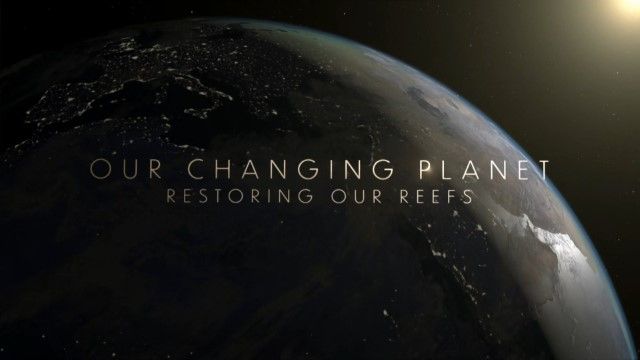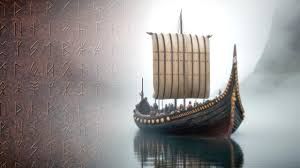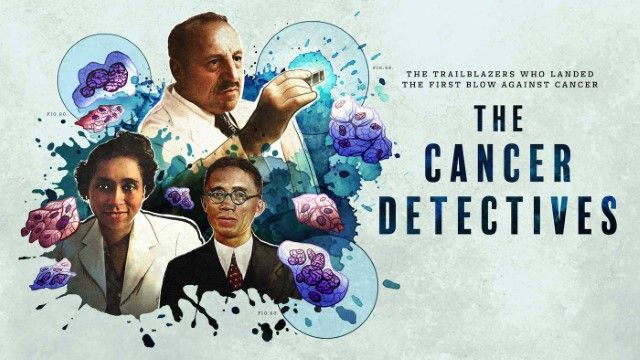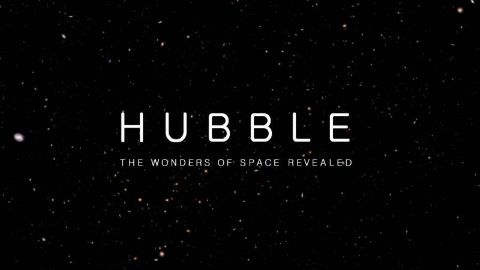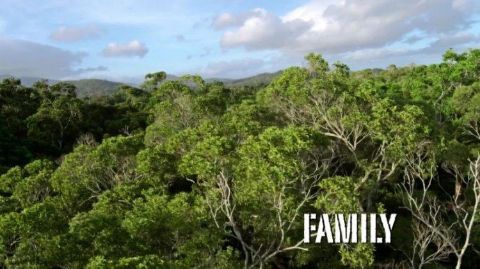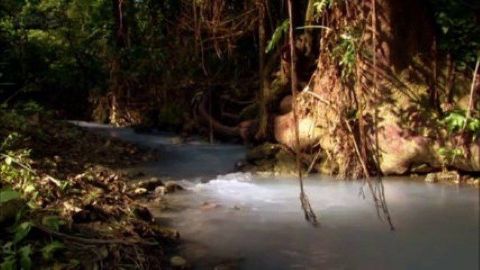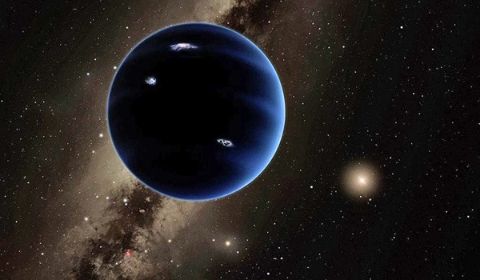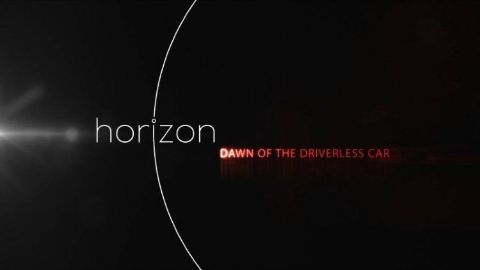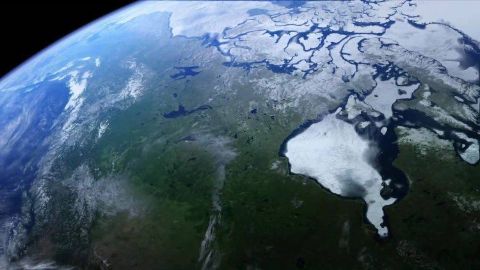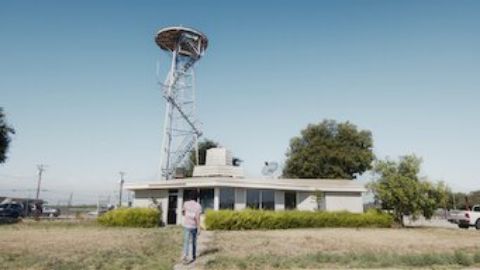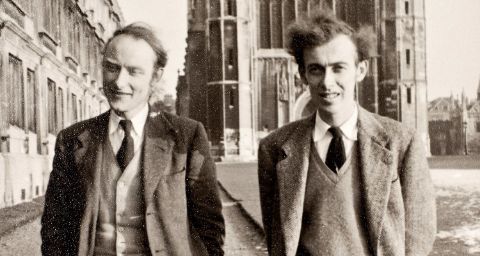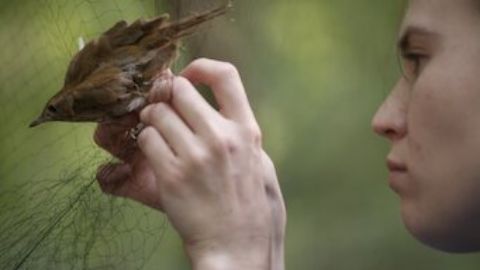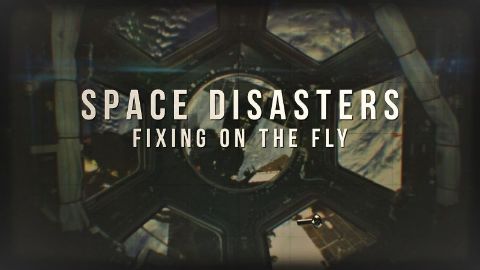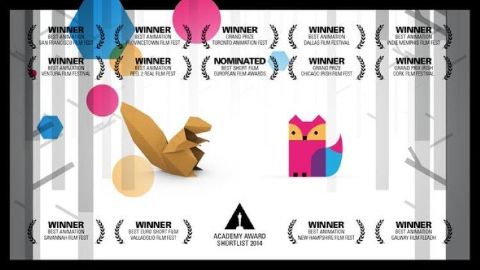Latest Documentaries
In the third year of this seven-year project examining the issues facing the planet’s most threatened ecosystems, Dr. M. Sanjayan visits the Maldives to take an in-depth look at coral reefs and the urgent efforts to help them survive climate change.
S3E1 • 2024 • Nature
The life and work of M.C. Escher is presented primarily through his own words in the form of his writings being read against a backdrop of images associated to him, including archival footage of himself and images of his drawings. Many further details are provided by surviving family members. Escher himself considered what he did being caught between the worlds of art and mathematics - he not very good at either - his drawings always having an element of geometry. He made a conscious decision to work in monochromatic black and white realizing that he would be missing being able to convey ideas that are inherent with color. The evolution to two of his later periods is discussed, namely his series of drawings of the human eye, and what would become his ultimate fascination, that of the concept of infinity, whether it be real, as in the circle or the study of a man viewing a picture of himself viewing a picture of himself and so on, or perceived through illusions, such as his never-ending staircase. The documentary is buttressed by commentary from fan, musician Graham Nash who believes his brilliance has not yet been fully appreciated. Further Information
2021 • People
We often assume that advanced technology will make it easy for aliens to colonize space. But what if space exploration is always difficult, no matter how advanced you are? Let’s travel back in human history, to the colonization of Oceania over 5000 years ago, to find parallels between ancient explorers and extraterrestrial civilizations.
In a Nutshell • 2024 • Astronomy
The mid-10th-century reign of Harald Bluetooth as king of a newly unified, powerful and Christianized Denmark marked the beginning of a second Viking age. But the reign was not to last with the Normans finally winning the English Kingdom in 1066. We look at the final days of the Viking empire.
S1E6 • Vikings: The Rise and Fall • 2022 • History
Political turmoil in Norway leads a voyage of discovery west. The Vikings discover Iceland where they established lasting settlement. Further exploration from Iceland leads to the discovery of Greenland and to the shores of Newfoundland, making them the first Europeans to discover America.
S1E5 • Vikings: The Rise and Fall • 2022 • History
The siege of Paris in 885 was the culmination of the Viking invasions of Francia. We look at the persistent Viking attacks on Francia and the enduring presence of the Scandinavians on the Frankish Empire and beyond.
S1E4 • Vikings: The Rise and Fall • 2022 • History
The "Silk Road" opened up a world of trade for the Scandinavians in the East. Seeking further wealth, the Vikings known in the East as "the Rus" attacked Constantinople in 860. The Rus became a permanent and feared fixture in the Byzantine Empire.
S1E3 • Vikings: The Rise and Fall • 2022 • History
The Siege of York occurred from 866 when the Great Heathen Army laid claim to the Northumbrian capital of York. We look at the major battles, players and strongholds of the York battle and how the Vikings later came to control much of the 9th Century England.
S1E2 • Vikings: The Rise and Fall • 2022 • History
An attack on a small religious community on the holy island of Lindisfarne in AD 793 heralded the start of the Viking Age of conquest and expansion. For 200 years, the longships from Scandinavia threatened all of Europe. But it was far from their first attack. We reveal how the Vikings' reign of terror began in Scandinavia.
S1E1 • Vikings: The Rise and Fall • 2022 • History
Follows a Ukrainian battalion on the frontline of the war against Russia, filmed by the soldiers themselves as they try to defend a vital railway line, the capture of which would enable Russia to mount a direct attack on Ukraine's second largest city Kharkiv. The film examines the lives of the 99-strong military company as they face sustained Russian assaults, presenting a ground-level view of the war through the eyes of the troops fighting it.
2024 • History
The story of how the life-saving cervical cancer test became an ordinary part of women's lives is as unusual and remarkable as the coalition of people who ultimately made it possible: a Greek immigrant, Dr. George Papanicolaou; his intrepid wife, Mary; Japanese-born artist Hashime Murayama; Dr. Helen Dickens, an African American OBGYN in Philadelphia; and an entirely new class of female scientists known as cyto-screeners. But the test was just the beginning. Once the test proved effective, the campaign to make pap smears available to millions of women required nothing short of a total national mobilization. The Cancer Detectives tells the untold story of the first-ever war on cancer and the people who fought tirelessly to save women from what was once the number one cancer killer of women.
2024 • Health
The search for Pablo Escobar as told by US Drug Enforcement Administration agents, with never-before-seen footage of Escobar's life and capture.
2018 • People
Recommended Documentaries
To celebrate the 30th anniversary of its launch, this film tells the remarkable story of how Hubble revealed the awe and wonder of our universe and how a team of daring astronauts risked their lives to keep it working.
While most of the series has focused on conflict, this episode is all about co-operation. The suitably named social spiders spin one enormous, 30m web for the whole colony, a queen bee rules her hive with a strict hierarchy and some green ants show great team spirit to help build a nest together. There are no broken societies here. David Attenborough shifts the focus to bugs that prefer cooperation rather than conflict. They include burrowing cockroaches, the suitably named social spiders - which share a 30-metre web.
5 • Micro Monsters with David Attenborough • 2013 • Nature
The next programme explores the various sea-living invertebrates. In Morocco, the limestones are 600 million years old, and contain many invertebrate fossils. They fall broadly into three categories: shells, crinoids and segmented shells. The evolution of shelled creatures is demonstrated with the flatworm, which eventually changed its body shape when burrowing became a necessity for either food or safety. It then evolved shielded tentacles and the casings eventually enveloped the entire body: these creatures are the brachiopods. The most successful shelled animals are the molluscs, of which there are some 80,000 different species.
2/13 • Life on Earth • 1979 • Nature
Astronaut Mike Massimino investigates the possibility of a giant ninth planet at the edge of the solar system; using the latest technology, he reveals the incredible secrets of this mysterious world.
S1E5 • The Planets (US) • 2017 • Astronomy
The car has shrunk the world, increased personal freedom and in so many ways expanded our horizons, but there is a flipside. Fumes from car exhausts have helped to destroy our environment, poisoned the air we breathe and killed us in far more straightforward ways. But all that is going to change. Horizon enters a world where cars can drive themselves, a world where we are simply passengers, ferried about by wholesome green compassionate technology which will never ever go wrong. And it is almost here. Horizon explores the artificial intelligence required to replace human drivers for cars themselves, peers into the future driverless world and discovers that, despite the glossy driverless PR (and assuming that they really can be made to work reliably), the reality is that it might not be all good news. From the ethics of driverless car crashes to the impact on jobs, it might be that cars are about to rise up against us in ways that none of us are expecting.
Horizon • 2017 • Technology
Math Documentaries
Using the fundamentals of set theory, explore the mind-bending concept of the "infinity of infinities" -- and how it led mathematicians to conclude that math itself contains unanswerable questions.
Zero and infinity. These seemingly opposite, obvious, and indispensable concepts are relatively recent human inventions. Discover the surprising story of how these key concepts that revolutionized mathematics came to be – not just once, but over and over again as different cultures invented and re-invented them across thousands of years.
2022 • Math
Professor David Spiegelhalter tries to pin down what chance is and how it works in the real world. A blend of wit and wisdom, animation, graphics and gleeful nerdery is applied to the joys of chance and the mysteries of probability, the vital branch of mathematics that gives us a handle on what might happen in the future. How can you maximise your chances of living till you're 100? Why do many of us experience so many spooky coincidences? Should I take an umbrella? These are just some of the everyday questions the film tackles as it moves between Cambridge, Las Vegas, San Francisco and Reading. Spiegelhalter discovers One Million Random Digits, a book full of hidden patterns and shapes, introduces us to the unit called the micromort (a one-in-a-million chance of dying), and uses the latest infographics to demonstrate how life expectancy has increased in his lifetime and how it is affected by our lifestyle choices - drinking, obesity, smoking and exercise.
2012 • Math
Why are most manhole covers round? Sure it makes them easy to roll, and slide into place in any alignment. But there’s another, more compelling reason, involving a peculiar geometric property of circles and other shapes. Marc Chamberland explains curves of constant width and Barbier’s theorem.
One deck. Fifty-two cards. How many arrangements? Let's put it this way: Any time you pick up a well shuffled deck, you are almost certainly holding an arrangement of cards that has never before existed and might not exist again. Yannay Khaikin explains how factorials allow us to pinpoint the exact (very large) number of permutations in a standard deck of cards.
From a bee’s hexagonal honeycomb to the elliptical paths of planets, symmetry has long been recognized as a vital quality of nature. Einstein saw symmetry hidden in the fabric of space and time. The brilliant Emmy Noether proved that symmetry is the mathematical flower of deeply rooted physical law. And today’s theorists are pursuing an even more exotic symmetry that, mathematically speaking, could be nature’s final fundamental symmetry: supersymmetry.
World Science Festival • 2016 • Math
Science Documentaries
How does the cloud above your head connect to the cloud that stores your data? The answer involves a shipwreck and a shark-proof garden hose.
S1E5 • Connected - The Hidden Science of Everything • 2020 • Science
Interweaves the present-day story of the Rosens, a young family on an odyssey to find a cure for their four-year old daughter's rare genetic disease, with stories of the exciting discoveries of the early pioneers in genetics — Gregor Mendel, Thomas Hunt Morgan, Francis Crick and James Watson. This episode also tracks the dark period in human history when a little genetic knowledge was used to justify terrifying human experiments that culminated in the Holocaust.
S1E1 • The Gene: An Intimate History • 2020 • Science
Ever feel like you're being watched? Well, you may be right. Latif explores the sometimes cute, often creepy ways surveillance pervades our lives.
S1E1 • Connected - The Hidden Science of Everything • 2020 • Science
Join scientists on the most ambitious Arctic research expedition of all time. Experts from over twenty different nations join the voyage of the massive Polarstern icebreaker as it’s gripped by the polar ice and drifts for nearly an entire year. From this unique research station, they can make long-term observations and perform experiments in unprecedented detail. Facing hungry polar bears, perilous sea ice cracks, and brutal cold, the team strives to understand the forces that are changing the region—and the world—forever
"It's alive!" Since Dr. Frankenstein spoke those famous words, we've been alternately enthralled and terrified by the idea of creating life in the lab. Now, a revolution in genetic engineering and thrilling innovations in synthetic biology are bringing that dream—or nightmare, as the case may be—closer to reality. New tools allow researchers to use cells to create their own DNA and edit it into existing genomes with more ease and less cost than ever before. Along with renewed hopes for treating some genetic diseases, there's serious talk of using the newest technologies to bring long-extinct animals back from the dead – like the team hoping to resurrect the woolly mammoth. Science fiction is quickly becoming science fact. NOVA Wonders explores the benefits and the burden of risk surrounding the controversial new technology
5 • Nova Wonders • 2018 • Science
In March 2018 an international team of scientists gathered in a remote valley in the Canadian Rockies to conduct a unique experiment - to attempt to see into the heart of a massive avalanche to see if we can find ways to save lives in the future. Avalanches kill hundreds of people every year. Even in the UK 25 people have been killed by these forces of nature since the year 2000. But we know surprisingly little about them - why they happen or how they are able to produce destructive forces so powerful that they can flatten entire villages. Equally disturbing is the fact that climate change means that the pattern of avalanches is changing. They are occurring in places where they have never happened before. Finding out where might be in danger in the future is of vital importance. Answering all these questions could help save lives. The experiment attempts to provide those answers. The team of experts, gathered from all over the world, includes the programme's presenter Prof Danielle George. Her day job is studying space at Manchester University, but she is also a specialist in the design of experiments. She is even getting personally involved. As part of an experiment to test out safety equipment, Danielle puts on the latest breathing device intended to help you survive being caught in an avalanche. She then agrees to be buried under half a tonne of snow. The scientists hope to do what no one has ever managed before - to reveal the mysteries of an avalanche's destructive power by finding out what is going on at its very heart. Hitherto, our understanding of avalanches has been based on computer models - but these consistently underestimate the sheer power of these natural phenomena. To try and work out why, the scientists will conduct a range of cutting-edge tests, using the latest technology, including placing a car rigged with sensors right in the path of the avalanche. The plan is to set up the equipment and then unleash the avalanche by dropping explosives near the top of the slope. But the team are in a race against time. They have just three days to rig the mountain before the snow will come down the slope naturally. If they aren't ready in time, all their efforts will be wasted. Even worse, they are working in an active avalanche zone. For some scientists going out on the slopes to install their equipment means risking their lives. Interwoven with the main experiment are powerful and moving stories from survivors of these violent natural forces. We meet Casey George, whose two children were buried when an avalanche struck the small town of Missoula, Montana, completely out of the blue while they were playing. Their neighbour Fred Allendorf was inside his house when it was completely destroyed. The cataclysm claimed the life of his wife. Missoula had never been struck by an avalanche before. And no one could understand how a well-built house could be utterly demolished. The film meets British snowboarder Johno Verity, who was being filmed when an avalanche started right underneath him. His story provides clues as to what causes these disasters - a subtle change in the microscopic structure of snow deep beneath the surface. In a unique snow lab, where they can recreate different snow conditions, Danielle discovers exactly how snow can be transformed from something light and fluffy into a potential killer. And there is Elyse Saugstad, an expert skier who, despite years of experience, was caught unawares in an avalanche that killed three of her friends. All these stories emphasise just how unpredictable and devastating these events can be and why we need to understand and so be able to predict them better. In addition to being buried, Danielle George conducts another experiment into equipment that may help skiers survive being caught in an avalanche. Your chances of living rapidly diminish if you are buried for more than 15 minutes. She conducts a test with an inflatable airbag that is designed to keep you near the surface of an avalanche, making you easier to find. After two intense days of work by the scientific team, the experiment ends with over 1,000 tonnes of snow rushing down the mountainside. It triggers a whole host of censors and observational equipment. There is then a tense wait for results. But when they come, they are revealing. It seems that the team may have uncovered the first clues to an avalanche's unexplained power. If so, this could one day lead to significant breakthroughs in how we build houses and infrastructure that may lie in an avalanche's path and in how we devise safety equipment for skiers. It could be that this experiment will help save lives in the future.
2018 • Science
Randoms! Documentaries
As spring begins after four months of winter darkness. Polar bears lead their cubs to hunt, beluga whales trapped by ice see the possibility of escape, harp seals teach their pups to swim, and bowhead whales come in search of food. Plus, a look at how the region is warming faster than anywhere else on Earth due to climate change.
S1E2 • Frozen Planet II narrated by Sir David Attenborough • 2022 • Nature
Relive some of the most unexpected accidents in spaceflight and meet the astronauts who had to fix them on the fly
S1E3 • Space Disasters • 2020 • Astronomy
Americans are shocked by terrible losses on the Pacific atoll of Tarawa, while in Italy Allied forces are stalled for months at Monte Cassino and a risky landing at Anzio fails utterly. At home, as overcrowded "war towns" boom, economic transformation leads to confrontation and ugly racial violence.
Professor Jonathan Van-Tam takes a deep dive into the fascinating and varied world of viruses. He aims to show how public health measures, combined with ground-breaking science, will have an impact far beyond Covid-19, including breakthroughs that could help fight other infectious diseases, genetic disorders and even cancer.
S1E1 • Royal Institution Christmas Lectures - Going Viral • 2021 • Health
How pioneers unlocked electricity's mysteries and built strange instruments to create it.
